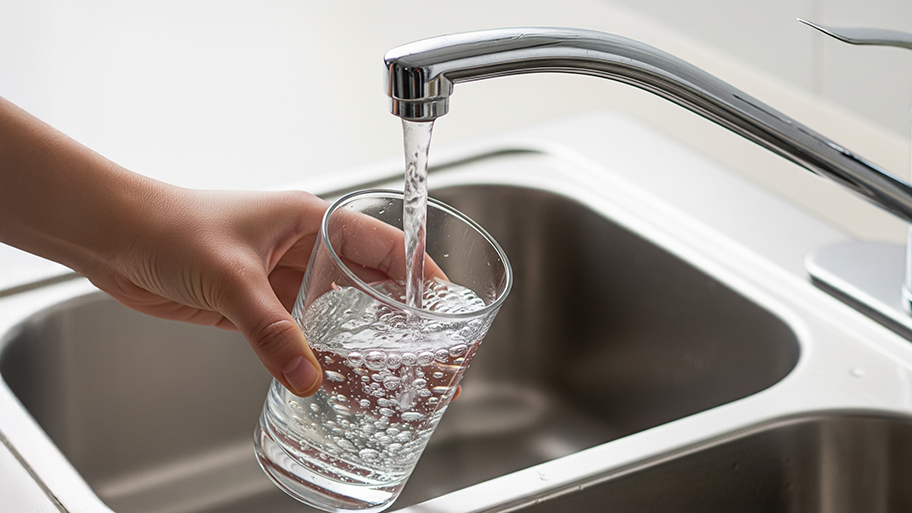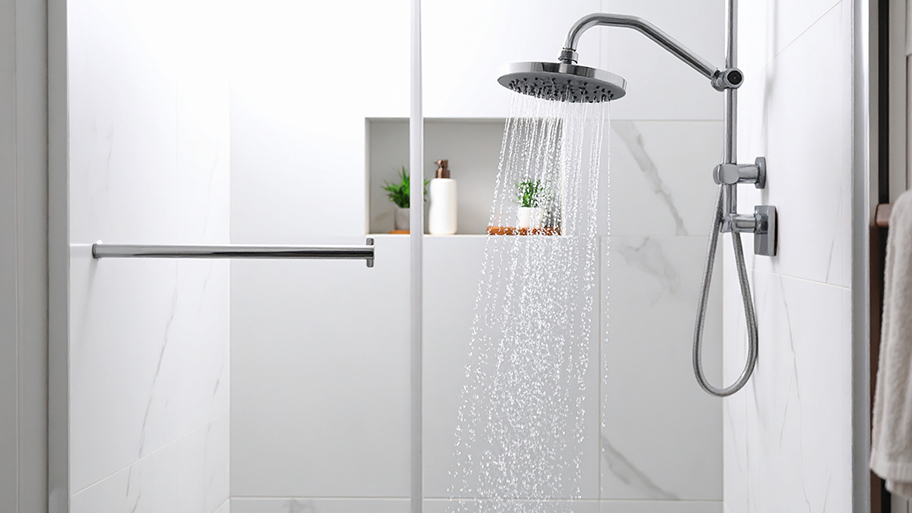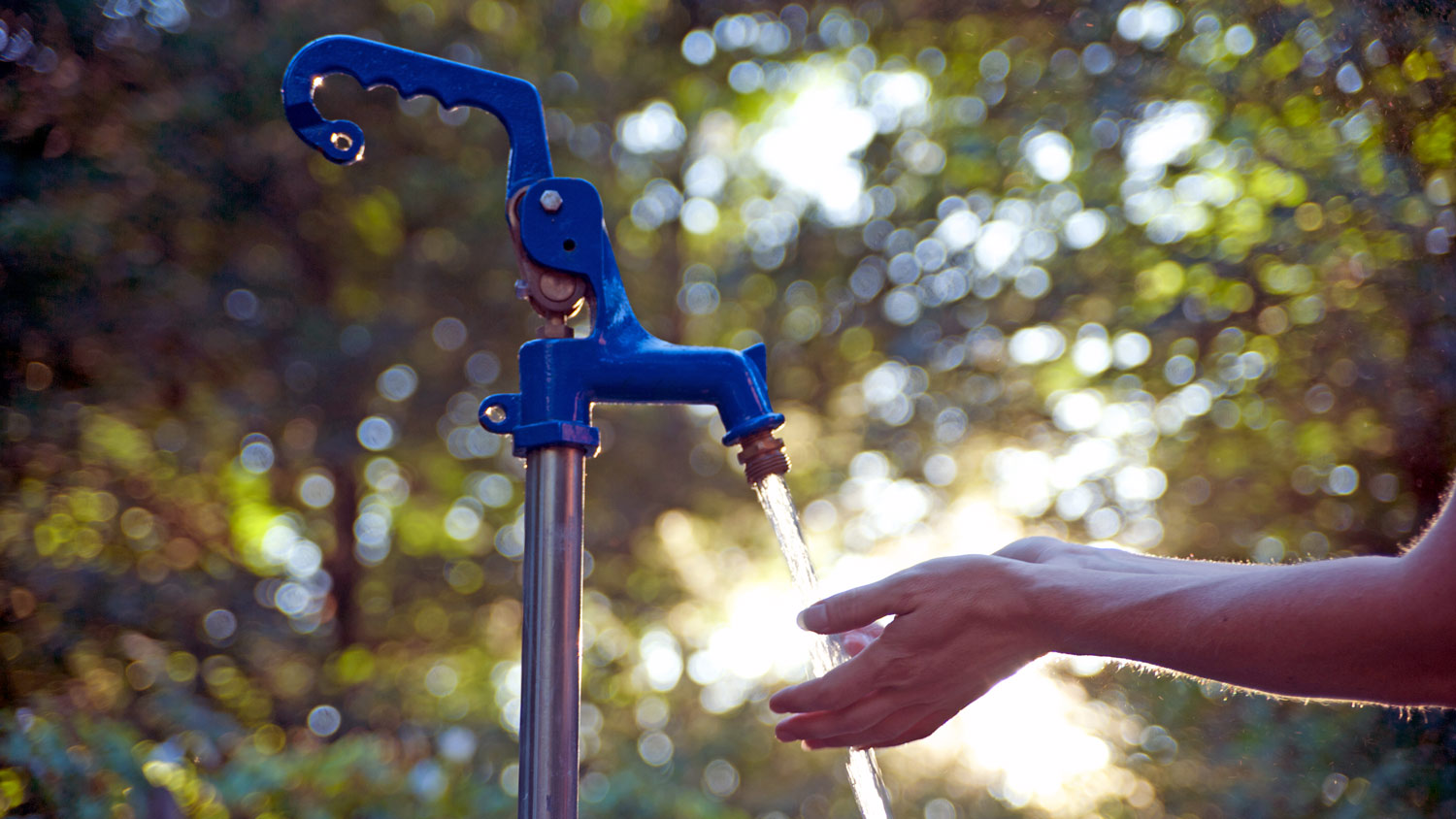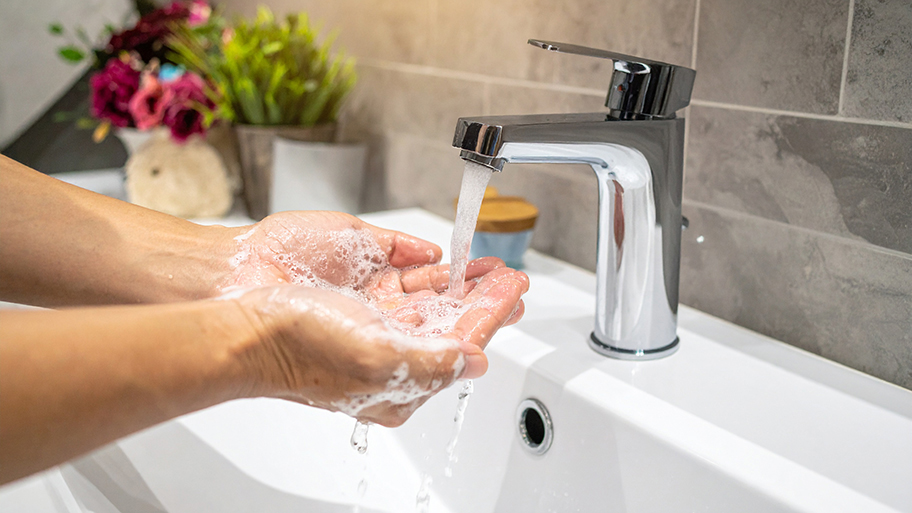
On average, a reverse osmosis water filter costs around $2,200, but there are a few variables that impact the total price. Learn about them in this guide.
It’s not hard to soften up your water supply


Hiring a pro instead of using a DIY test kit gives you a precise reading of your home’s water hardness.
Professionals know which hard water treatment options are most effective, so you don’t waste time or money guessing.
A new water softener costs $200 to $6,000, and professional installation ensures it works correctly and your investment isn’t wasted.
Some systems require plumbing knowledge and heavy lifting, which makes hiring a local water softener installer worth the cost.
If you’re tired of scrubbing stains out of your shower, drinking from splotchy glassware, and dealing with all the other issues caused by hard water, it’s time to learn how to treat hard water in your home. Whether you want to treat the hard water at the source or tackle the effects of it, we’ve got you covered. Here are some strategies for dealing with hard water so you can enjoy a cleaner home and protect your plumbing.
Hard water is water with a high concentration of minerals. It occurs when groundwater flows through mineral-rich soil and rock and, in the process, absorbs those minerals. Calcium and magnesium are the most common minerals found in hard water, but it can contain others, as well, including aluminum, iron, and zinc.
Hard water is present in many parts of the U.S., including the Southwest and Midwest. Look out for the following signs of hard water to figure out if it’s in your home:
Limescale buildup in toilets, sinks, and showers
Residue on dishes and silverware
Stiff or faded clothes
Dry or irritated skin
Dull or brittle hair
Soap that doesn’t lather easily
High water bills
If these signs sound familiar, the next step is to test your water hardness to find out exactly how hard your water is. The results will help you determine the right solution.
Once you’ve confirmed that you have hard water, you have several options for fixing it, including installing a water softener, reducing the water temperature, boiling water, or using vinegar, washing soda, or appliance cleaner to treat the effects. Here’s what to do based on the severity of the issue:
If your goal is to soften your home’s water before drinking or using it, you can install a water softener, reduce the water temperature, or boil your water.
Installing a water softener is a more comprehensive solution that treats all of the water coming into your home. Whole-house water softening systems connect to your main water supply line and are highly effective at fixing hard water issues.
There are several types of water softeners, each of which has a different method for removing minerals or contaminants from water. For example, an ion exchanger is a popular kind of water softener that replaces calcium and magnesium ions with sodium ions. No matter which kind you get, a water softener is your best choice for treating hard water.

If you’re dealing with moderately hard water, you may be able to soften it by lowering the temperature of your water heater. That’s because heat can separate the minerals in hard water, allowing them to collect on your water heater faster (and worsen your hard water problems). Set your water heater’s temperature to 120 degrees Fahrenheit and see if the hard water issues ease up.
There are two categories of hard water—temporary and permanent—and the difference lies in the types of compounds they contain. If you have temporary hard water, boiling it will help reduce its hardness. Additionally, boiling can only reduce the water hardness of very hard water, so it might not make much of a difference if you only have slightly hard water.
To treat hard water by boiling, fill a clean pot or kettle with water. Bring it to a boil for a few minutes, and then turn off the heat. Minerals should settle at the bottom of the pot (they may not be visible). Once the water cools completely, scoop up the top portion of the water and pour it into a clean container.
Want to treat the unpleasant effects of hard water in your home? Try using an appliance cleaner, vinegar, or washing soda to your advantage.
Many brands sell cleaning products specifically designed to reduce the effects of hard water on your appliances. However, vinegar is highly effective at removing calcium buildup in pipes and getting rid of hard water stains.
Not only is vinegar natural and affordable, but it also works on most surfaces (just don’t use it on grout or natural stone). All you have to do is spray, let it sit, and wipe it off. You can even clear out hard water deposits in appliances (like coffee makers and washing machines) by pouring vinegar into the appliance and running a normal cycle.
Washing soda, also known as sodium carbonate, is a cleaning agent that’s similar to baking soda, but it’s more abrasive. It acts as a natural water softener for both temporary and permanent hard water, and it’s useful for reducing water hardness in your washing machine. Just add a cup of sodium carbonate (not baking soda) into your load of laundry with your usual detergent.
However, according to the Icahn School of Medicine at Mount Sinai, consuming washing soda can be dangerous, so you shouldn’t use it to treat drinking water or any type of water that comes into direct contact with your body.
Sometimes, you might need to work with hard water rather than fight against it. There are a few ways to do this, including:
Switching shampoo and soap: To prevent calcium buildup in your hair, choose a shampoo that contains apple cider vinegar. Similarly, bath products made with sodium or potassium may neutralize heavy metals.
Using a rinse aid: If you’re sick of stained dishes and silverware, using a dishwasher rinse aid can help. The chemicals in these products prevent water from sticking to surfaces, leaving you with squeaky clean dishware.
Protecting your water heater: Hard water minerals can build up in your water heater. Over time, this can reduce its efficiency or cause it to break down. To prevent calcium from damaging your water heater, make sure to flush it and descale the tank at least twice per year.
There are some DIY-friendly methods for treating hard water, such as lowering your water heater temperature or installing a point-of-use water filter. However, these options are best reserved for houses with moderately hard water or people who can’t install full-scale soft water systems.
If you have extremely hard water, installing a water softener is the most effective way to treat it. Be aware, though, that this project requires plumbing knowledge and working with heavy equipment, so you should call a local water softener installation company to handle it for you.
On average, a new water softener costs $200 to $6,000, depending on the type of softener system, the size of your home, and other factors. Hiring a professional to install it will add $150 to $1,000 in labor costs.
From average costs to expert advice, get all the answers you need to get your job done.

On average, a reverse osmosis water filter costs around $2,200, but there are a few variables that impact the total price. Learn about them in this guide.

Water softener repair costs can add up, but they’re almost always worthwhile. Use this guide to see what your project is going to cost before you get started.

Discover how much well water treatment systems cost, including installation, maintenance, and tips to save. Get expert insights to plan your water system project.

Removing a water softener for repair or replacement requires a few tools but a lot of skill. Learn how to remove a water softener like a pro with this guide.

Want to make sure you and your family have perfectly clean drinking water? Installing a whole-house water filter might be your best option.

Need help dialing in your water hardness? Use this handy DIY guide on how to set a water softener to save money and get the best results possible.